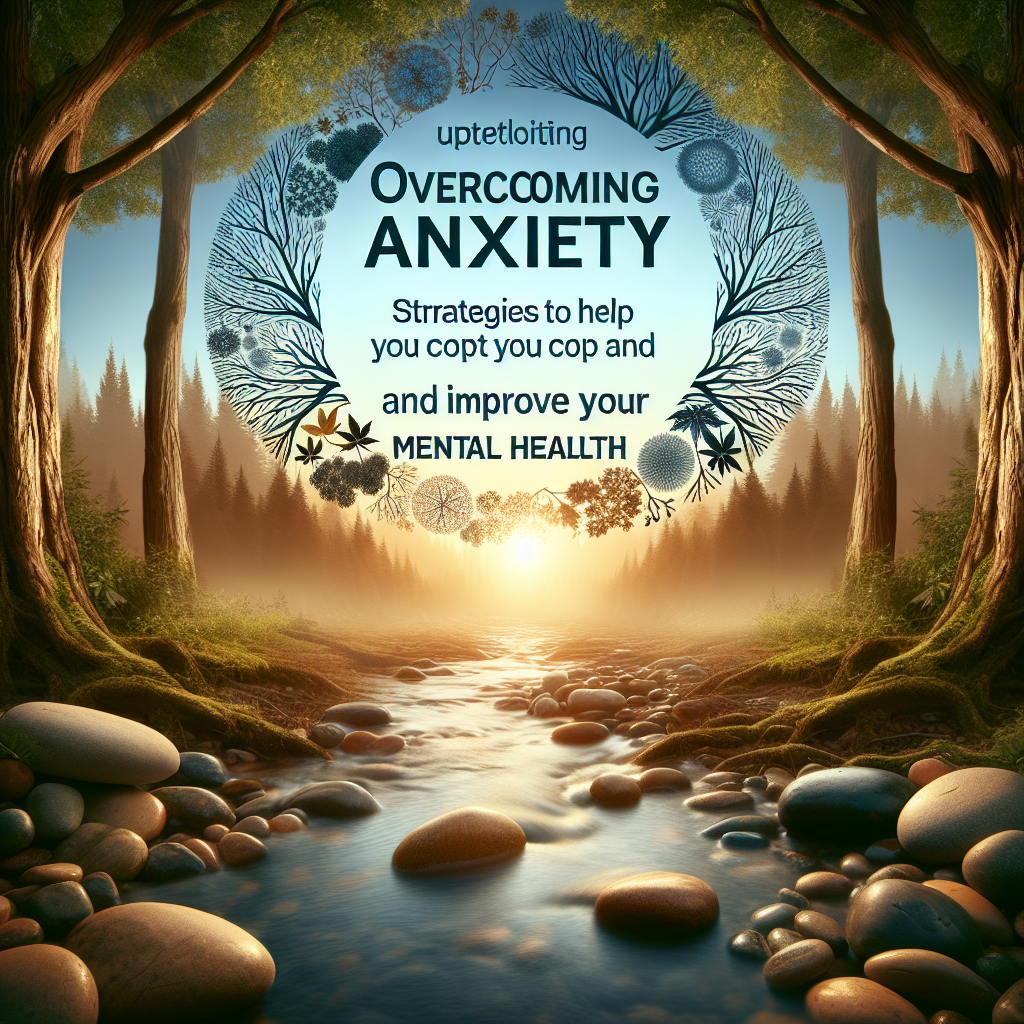Anxiety is a common mental health condition that affects millions of people worldwide. It can manifest in various forms, including generalized anxiety disorder, social anxiety, panic attacks, and phobias. While it is normal to experience feelings of anxiety from time to time, chronic anxiety can interfere with daily life and have a negative impact on overall well-being. Fortunately, there are strategies that can help individuals cope with and overcome anxiety, improving their mental health and quality of life.
Understanding Anxiety
Before diving into strategies for overcoming anxiety, it is important to understand what anxiety is and how it can impact individuals. Anxiety is a natural response to stress or danger, commonly referred to as the fight or flight response. When faced with a perceived threat, the body releases hormones that prepare it to either confront the threat or flee from it. While this response is helpful in dangerous situations, chronic anxiety can cause the fight or flight response to become overactive, leading to ongoing feelings of fear, worry, and unease.
Symptoms of anxiety can vary from person to person but may include:
– Persistent worry or fear
– Restlessness
– Difficulty concentrating
– Irritability
– Muscle tension
– Sleep disturbances
– Panic attacks
– Avoidance of situations that trigger anxiety
It is important to recognize the signs of anxiety and seek help if you believe you may be struggling with this mental health condition.
Strategies for Overcoming Anxiety
1. Practice Mindfulness
Mindfulness is a practice that involves being present in the moment and observing thoughts, feelings, and sensations without judgment. By practicing mindfulness, individuals can learn to recognize and accept their anxious thoughts and feelings, rather than trying to suppress or avoid them. Mindfulness techniques, such as deep breathing, meditation, and body scans, can help reduce anxiety symptoms and promote a sense of calm and relaxation.
2. Challenge Negative Thoughts
Anxiety often stems from negative thought patterns that reinforce feelings of fear and worry. Cognitive-behavioral therapy (CBT) is a therapeutic approach that helps individuals identify and challenge these negative thoughts, replacing them with more balanced and realistic beliefs. By reframing negative thoughts, individuals can reduce anxiety and improve their overall mental health.
3. Stay Active
Exercise is a powerful tool for managing anxiety, as it helps release endorphins, or feel-good chemicals, in the brain. Engaging in regular physical activity, such as walking, running, or yoga, can help reduce anxiety symptoms and improve mood. Additionally, exercise can promote better sleep and overall well-being, making it an essential component of an anxiety management plan.
4. Maintain a Healthy Lifestyle
Eating a balanced diet, getting enough sleep, and avoiding substances like alcohol and caffeine can all have a positive impact on anxiety levels. A healthy lifestyle can help regulate mood, energy levels, and stress, making it easier to cope with anxiety. Additionally, avoiding stimulants and depressants can prevent exacerbating anxiety symptoms and promote overall well-being.
5. Seek Support
Talking to a therapist, counselor, or support group can provide valuable support for individuals struggling with anxiety. Therapy can help individuals understand the root causes of their anxiety, learn coping skills, and develop strategies for managing symptoms. Additionally, connecting with others who are experiencing similar challenges can offer validation, encouragement, and a sense of community.
Frequently Asked Questions
Q: What are the different types of anxiety disorders?
A: There are several types of anxiety disorders, including generalized anxiety disorder, social anxiety disorder, panic disorder, and specific phobias. Each type of anxiety disorder has its own unique symptoms and challenges, but they all involve excessive and persistent worry or fear.
Q: Can anxiety be cured?
A: While anxiety cannot be cured outright, it can be managed effectively with the right strategies and support. Many individuals are able to significantly reduce their anxiety symptoms and improve their quality of life through therapy, medication, and lifestyle changes.
Q: How long does it take to overcome anxiety?
A: The timeline for overcoming anxiety can vary from person to person, depending on the severity of symptoms and the effectiveness of treatment. Some individuals may see improvements in a matter of weeks, while others may require longer-term therapy and support.
Q: Can anxiety go away on its own?
A: In some cases, mild anxiety symptoms may resolve on their own without intervention. However, chronic anxiety or severe anxiety disorders typically require professional treatment to effectively manage symptoms and improve mental health.
Q: Is medication necessary to treat anxiety?
A: Medication can be a helpful tool in managing anxiety, particularly in cases of severe or persistent symptoms. However, medication is not always necessary, and many individuals find relief through therapy, lifestyle changes, and other non-pharmacological interventions.
In conclusion, anxiety is a common mental health condition that can have a significant impact on individuals’ daily lives. By implementing strategies such as mindfulness, cognitive-behavioral therapy, exercise, and seeking support, individuals can effectively cope with and overcome anxiety, improving their mental health and overall well-being. If you or someone you know is struggling with anxiety, do not hesitate to seek help from a mental health professional. Remember, you are not alone, and there are resources available to support you on your journey to better mental health.




Leave A Comment